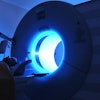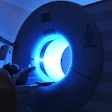The approval of colonoscopy for colorectal cancer screening in 2001 may explain the drop in disease prevalence over the past decade, according to a new study published online October 23 in Gastroenterology.
Researchers at Stanford University Medical Center looked at data from more than 2 million patients over the past 20 years. They found that the drop in colorectal cancer incidence correlated with Medicare's approval of optical colonoscopy coverage in 2001.
The data were collected from the Nationwide Inpatient Sample, a large database that includes more than 1,000 hospitals. Dr. Uri Ladabaum and colleagues examined trends in colorectal cancer surgery, which reflect cancer incidence. To distinguish between flexible sigmoidoscopy and conventional colonoscopy, the study team looked specifically for differences in cancer rates in the lower versus the upper colon, as colonoscopy alone would be expected to have a role in preventing both types of disease.
The results suggest that increased use of colonoscopy may explain the decrease in incidence of upper colon cancer over the past 10 years. The paper's major findings include the following:
- The rate for resecting colorectal cancer dropped from 71 to 47.3 resections per 100,000 persons between 1993 and 2009.
- The resection rate for lower colorectal cancer decreased by about 1.2% per year between 1993 and 1999; it then fell more sharply at 3.8% per year from 1999 to 2009.
- By comparison, the resection rate for upper colon findings remained steady until 2002, when it began falling by 3.1% per year until 2009.
The results support the idea that the drop in the incidence of lower colorectal cancer might be associated with screening in general, because some patients were already undergoing stool tests and sigmoidoscopy in the early 1990s, whereas the reduction in upper colon cancer incidence might be specifically associated with colonoscopy, Ladabaum and colleagues concluded.
The study did not consider the use of virtual colonoscopy, a whole-colon screening option that is used much more rarely than colonoscopy because it is not reimbursed by Medicare.



















